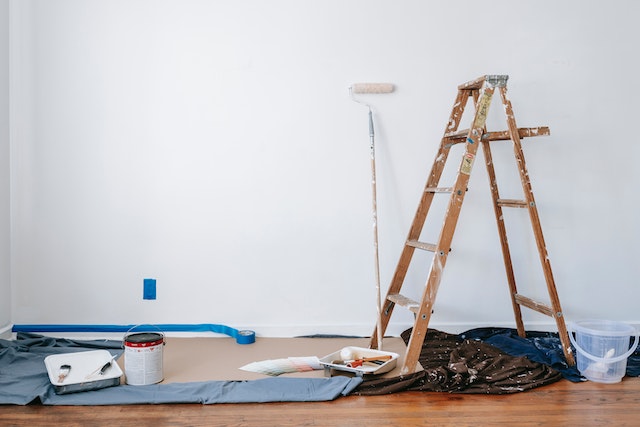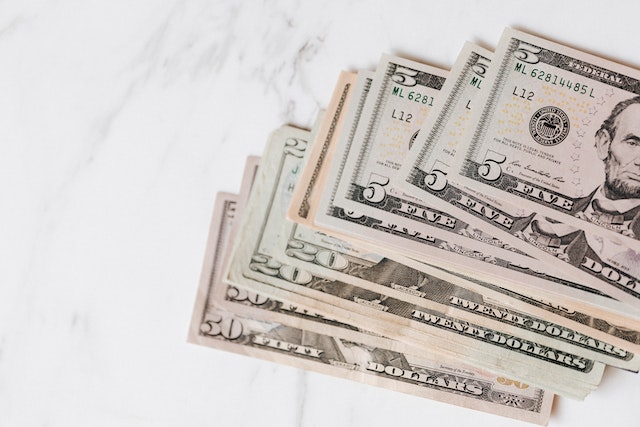

In most states, landlords are allowed to collect security deposit from their tenants, including New York. Security deposits can serve as a cushion against things such as unpaid rent or damages to the property. In New York, security deposits can:
- Help cover the cost of damaged carpet: If the carpet is damaged beyond normal wear and tear, landlords can charge tenants for the cost. Landlords also have the option to deduct the cost from the security deposit.
- Be used to cover the cost of nail holes on the walls: If tenants damage the walls due to nail holes, landlords have the right to charge the cost to them. These damages include large holes from drilling, multiple nail holes, and holes made for hanging heavier objects.
- Help cover the cost of cleaning: In New York, landlords may use the security deposit to cover the cleaning fee if this is stated explicitly in the rental agreement.
- Help cover the cost of an unauthorized painting job: Security deposits may also be used to cover the cost of the damage as a result of painting the walls. Unauthorized paint jobs, unprofessional repainting, and any damage that is beyond normal wear and tear can be charged to tenants.

- Be used to cover unpaid rent: If tenants have missed rent payments, New York landlords may use the security deposit to cover the unpaid rent. If rent continues to go unpaid, however, you will want to consider an eviction.
- Help cover unpaid utilities upon move-out: Most lease agreements require tenants to pay their utilities. If tenants have unpaid utility bills upon move-out, landlords can use the security deposit to cover the cost.
- Be used to cover the moving and storage cost of tenants’ belongings: Security deposits in New York may also be used to pay for the cost of moving the tenants’ belongings, as well as storage fees.
A Guide to New York’s Security Deposit Law
1. Security Deposit Limit
Most states limit the amount of security deposit landlords can collect from tenants. In New York, landlords can charge a maximum amount equivalent to one month’s rent.
2. Nonrefundable Fees
Under New York security deposit laws, security deposits must be refunded to the tenants. Non-refundable fees may be allowed, but these fees should be separate from security deposits.
New York landlords are recommended to disclose any non-refundable charges to the tenants and include these fees on the lease agreement. Failure to do so may allow tenants to demand a refund upon termination of the lease.
3. Storing a Tenants Deposit in New York
Some states have rules regarding how landlords should keep a tenant’s deposit. According to the security deposit laws In New York, landlords are required to provide tenants with a written disclosure of how the security deposit funds will be stored during the course of the tenancy.

Landlords also need to disclose the name of the financial institution or banking organization where the security deposit funds are stored, the location of the holding, and the total amount withheld. Landlords may also include the account number in the disclosure.
Keep in mind that you should also pay interest to your tenants if the deposit was placed in an interest-bearing account. However, landlords can retain an annual 1% administration fee first. If there is any interest left after deducting the fee, then the tenants are eligible to receive what’s left of the interest.
4. Written Notice After Security Deposit Receipt
In New York, there is no statute that requires landlords to write a notice to their tenants regarding the receipt of their security deposit.
5. Reasons to Withhold a Tenant’s Security Deposit in New York
Under certain conditions, New York landlords can keep all or a portion of a tenant’s security deposit. Here are the allowable deductions in the state of New York:
- Unpaid rent
- Unpaid utility costs if the lease agreement indicates that tenants are responsible for paying their own utility bills
- Costs of damage that’s not part of normal wear and tear and excluding any existing damage during the initial inspection before the beginning of the tenancy. These may include:
- Replacing the damaged carpet
- Fixing the damaged walls caused by nail holes that are done by tenants
- Cleaning fee if the property is left unreasonably dirty
- Fixing any unauthorized or unprofessional painting jobs
- Cost of moving the tenant’s belongings
- Storage fees for the tenant's belongings

It’s important to note that in New York, security deposits may be used to cover the last month’s rent (or any outstanding rent, for that matter) as long as the landlord allows it.
However, if the landlords don’t want the security deposit to cover the last one month’s rent, it’s best to include a provision in the lease agreement that the security deposit cannot be used as payment for rent.
6. A Walk-Through Inspection
A walk-through inspection must be given as an option for tenants. Landlords must provide tenants with a written notice of their right to an inspection within a reasonable time before the end of the lease.
This should also allow tenants to repair any damage that’s beyond normal wear and tear as documented during the inspection.
If a tenant requests an inspection, you must complete such an inspection within one to two weeks before the end of the tenancy. Tenants must be given 48-hour written notice for the inspection schedule.
Landlords must then provide their tenant with an itemized statement of repairs or cleaning that they may complete to avoid deductions from their entire security deposit.

Note that landlords are not mandated to offer or conduct an inspection if the tenants break the lease in New York with less than two weeks’ notice.
7. Security Deposit Refund in New York
Landlords have 14 days after the tenant vacates the property to return the security deposit. A written itemized statement indicating deductions, corresponding reasonable and itemized costs, should be included if any deductions were made from the remaining portion of such security deposit.
8. Change in Property Ownership
There is no statute as to what the landlord is required to do with the security deposit in case the property is sold to a new owner.
Usually, landlords should transfer the security deposit to the new owner and notify the tenant in writing about the change of ownership and the status of their security deposit via registered or certified mail. The notice must include the name and contact details of the new owner.
Bottom Line
Its important that you thoroughly understand New York security deposit law so that you and your tenants are well-protected. When you write your lease agreements, make sure to clearly outline the amount, any non-refundable fees, refund policies, and how you will store the deposit.
If you have any questions on any landlord-tenant laws, dont hesitate to contact the experts at Olympic Property Management!
Disclaimer: This blog should not be used as a substitute for legal advice from a licensed attorney in your state. Laws change, and this post might not be updated at the time of your reading. Please contact us for any questions you have in regards to this content or any other aspect of your property management needs.